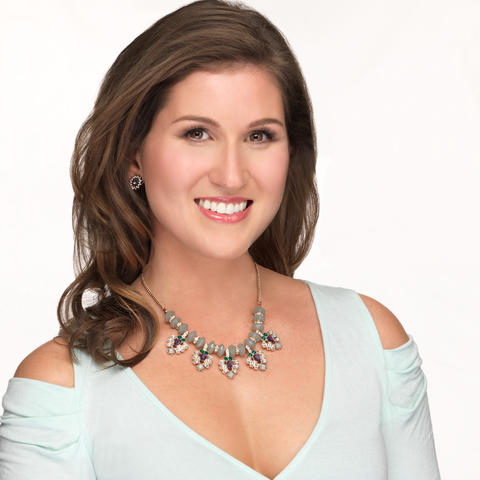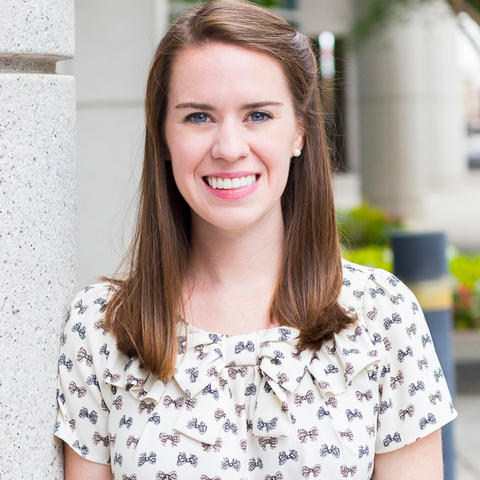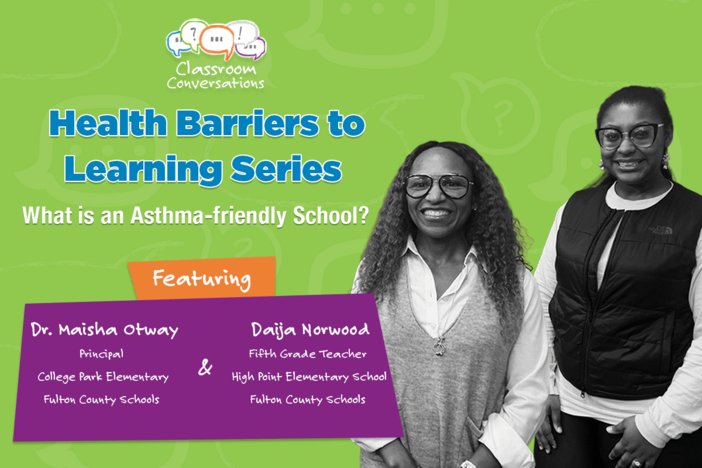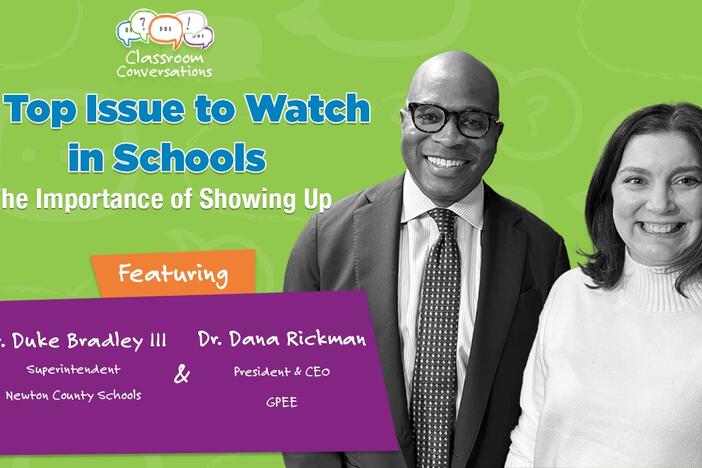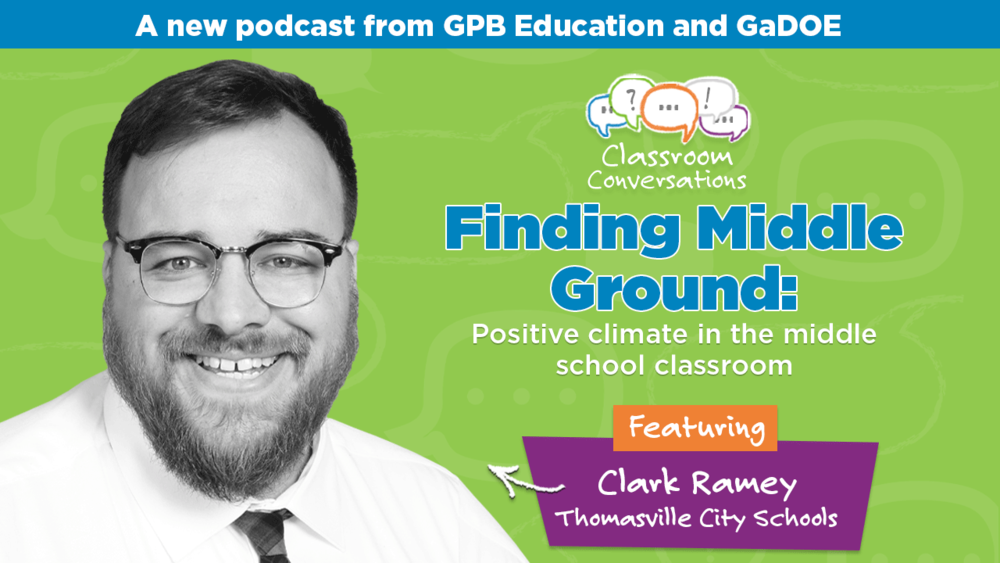
Section Branding
Header Content
Episode 104: Finding Middle Ground: Positive Climate In The Middle School Classroom
Primary Content
Thomasville City Schools teacher and PBIS Coach, Clark Ramey, talks about creating a positive classroom climate in his middle school classroom.

Thomasville City Schools teacher and PBIS Coach, Clark Ramey, talks about creating a posItive classroom climate in his middle school classroom.
Click here for discussion guide!
TRANSCRIPT
Ashley Mengwasser: Hello educators. Welcome to another energetic episode of Classroom Conversations, the platform for Georgia's teachers. Obviously. Classroom Conversations is presented by the Georgia Department of Education and Georgia Public Broadcasting. I'm your host, Ashley Mengwasser. This episode continues a topic that we introduced in the premier, Positive Classroom Climate. But today we transitioned to the middle school environment and this is already a touchy subject. I remember my middle school bangs, and so do all of my peers. Took a good eight years to grow those out. They started so back from my hairline, mom, what were you thinking? But there's always middle school magic to be found.
And today our teacher feature will take us behind the curtain for a close look at his positive middle school classroom. He's literally caught in the middle and he loves it. Welcome to the show to Mr. Clark Ramey. Clark teaches seventh and eighth grade ELA at MacIntyre Park Middle School in Thomasville. Thomasville is located in Southwest Georgia, but nobody puts Thomasville or Clark Ramey in a corner. Thank you, Patrick Swayze. Here via zoom is Clark Ramey. Hey Clark.
Clark Ramey: Hi Ashley. I'm so happy to be here with you today.
Ashley Mengwasser: Happy to see you. You look great. You look good in green.
Clark Ramey: Well, thanks. I just got a haircut, I'm feeling good about life.
Ashley Mengwasser: For this moment on radio, I respect that.
Clark Ramey: My parents always told me I had a face for radio.
Ashley Mengwasser: Hilarious. Well, would you share some background information about MacIntyre Park Middle School and your role there as a school-wide coach and team leader for the PBIS program? Tell us more.
Clark Ramey: Yes. So MacIntyre Park Middle School is a middle school in Thomasville, like you said, that's part of a one middle school and one high school district, which means that a lot of people wear a lot of different hats. There are a lot of roles that need to be fulfill and when you have a smaller student population, you have a smaller staff. And when you have a smaller staff, you have a lot of people who are willing to step in and take care a lot of different things. So in addition to my classroom responsibilities, I'm also the team leader and school coach for the Positive Behavior Intervention and Support system that we have in place. That's really all about teaching and promoting appropriate behaviors for students as they grow from the wide-eyed elementary school students into the almost fully formed adults that they are when they get towards high school and beyond.
Ashley Mengwasser: Beautiful. Bravo Coach Clark, can I call you Coach Clark? You're a PBIS coach.
Clark Ramey: That's absolutely fine.
Ashley Mengwasser: Okay, good. Because I just did. Now I want our audience to get to know more about you as a person and as a teacher. So let's play the Clark minute. I'm going to start a timer Clark and you'll have 60 seconds to blurt out as many facts about yourself as you can. It is a numbers game, Clark. So bombarded us, if you please. You ready to play?
Clark Ramey: Absolutely.
Ashley Mengwasser: Okay. In three, two, one, go.
Clark Ramey: All right. I am originally from Dayton, Ohio. I lived there the entire time that I was growing up until I left for college. I spent my college years in Nashville, Tennessee, which I then stayed in for 10 years afterwards. And then we moved down here and now working in Thomasville. I'm married, I have one daughter, she's six years old. I have a dog and a cat who get along with each other wonderfully, but not always with everyone else. My favorite author is Cormac McCarthy. I love the way that he paints word pictures.
Ashley Mengwasser: 20 seconds.
Clark Ramey: Which then makes sense. My favorite books are My Antonia by Willa Cather, The Road by Cormac McCarthy. My favorite book to teach is Raisin in the Sun. I play the cello and I have since I was six years old and I am also a throws coach for the track team.
Ashley Mengwasser: All right. Time's up. But guess what? You missed a very important fact that I need people to know about you. Who do you share a birthday with Coach Clark?
Clark Ramey: Britney Spears and I have the same birthday and just like her, I have been, I'm sure in some way that I don't even know freed from a metaphorical or literal bondage, I don't know, something.
Ashley Mengwasser: We brought you here to be and feel free. So I'm so glad that you have that. And if you feel the need to just belt out or reply to one of these questions, this is a creative space. So when the spirit moves you. Let's dive into our discussion here and well done with that one, lots to think about. I want to kick off our conversation with a little PCC 101 Positive Classroom Climate that is. What do you see as necessary ingredients for a positive classroom?
Clark Ramey: I think the first thing when I'm looking at how it is that I want to set up my classroom to encourage the positivity from both myself and the students is to make sure that I've established goals and that I've set clear expectations. When I'm establishing a goal for myself, I need to go back and look at where is it that I'm coming from? Where is it that the students are coming from? And where is it that we both need to head? So once I've set those goals and looked at the specific things that we need to work towards, I can continue to look and see, okay, what kind of expectations do I need to have in order for us to get there? And I hope that what you're hearing me get towards with these ideas is that when I'm looking at the goals, it's a goal that I share with the students.
It's not a goal that I have to battle or come into conflict students in order to reach. And I try really hard in all things that we're looking at to show and promote the idea that we are working together to make something happen. I am never looking to present myself or set myself in opposition to the students because if I'm always opposing them or if we are in conflict with each other by nature, then everything that I ask them to do is going to be something that has a natural pushback to it. So instead I want to create that culture and that climate of us working towards a goal together so that whenever it is that I ask them to do something or I present something that they're not as interested in doing, it's still presented from that space of I'm coming to you with something that we are working on together-
Ashley Mengwasser: Team effort.
Clark Ramey: And that we're going to try to... Yeah, absolutely. That we're going to reach this goal because it benefits everyone, not you're getting punished and so you have to do this thing.
Ashley Mengwasser: Makes perfect sense. And for the mechanics of that, tell us how you establish a positive classroom environment. What are some of your techniques?
Clark Ramey: One of the things that I try to establish very early on with my students is the idea that wherever you start, I am great with. There is no, well, if you aren't on grade level right now, then you are in trouble and you need to be scared for what is going to happen this school year. No. I tell students on the very first day, when I pass out our syllabus. English Language Arts is a come as you are class. It's just not a stay as you are class. In order for us to get better at the way that we look at the world and the way that we're able to communicate with the world, you need to be able to take in information, process it and give me something back that shows that you have an understanding of what's going on. And so by telling them, "If you feel like this is a subject that you have a real strength in, and that you've consistently done well in, and that you enjoy and that you get a lot out of coming to this class, then great."
My goal is to push you farther and farther and farther. And so that your journey continues on. If you come into ELA and you say, "Oh, I hate to read. I couldn't tell you the last time I picked up a book because I wanted to." Well, my goal is to help you turn and shift that mindset. And I'm not expecting that you're going to make all of the games in the world that would push you up with the student who came in so far ahead of you. But what I am expecting is that you are going to accept the help that I'm offering and really work to make improvements on who you are as an ELA student.
Ashley Mengwasser: You're really come as you are, let me see where you are. And then it sounds like you're all about changing mindsets.
Clark Ramey: Absolutely. As a teacher and human being, I'm very much about having a growth mindset and not being focused on, have you hit this plateau or this specific market of achievement? But how have you changed and how have you evolved as a student or as a human being?
Ashley Mengwasser: One of the things you said when I first spoke to you, Clark, on the phone that I loved was, and this is a quote, "We don't tell and expect, we teach, we explain, show and we work together." And I loved that. But the specific group of people is interesting. Are there any challenges specific to positive climate in middle school?
Clark Ramey: Middle school is such a unique place. They are coming out of this environment in elementary school where they are being led and shown so much information and everything that they're learning is cool and new and exciting. And they're transitioning now to having to take more ownership for things and they're being given more freedom and so they have so many more choices. And they're doing all of that while still really not having much experience with doing that and not knowing exactly the right way to always make those decisions or make those choices. And so in the middle school classroom, it's one of the things that can be so difficult is that you run into things that if you or I did on the street, you would look at them and you'd wonder how could you have ever thought that that was a reasonable thing for a normal human being who lives a productive life?
How could you have thought that that was something that could be done? But instead you remember, "Oh yes, these are students who are hormonal and impulsive and just not really understanding who they are or where they fit into the world." They both understand so much more about the world and so much less about themselves at the same time. And so recognizing that and treating them with the grace that is associated with that recognition can really do a lot to keep the frustration levels for teachers lower and also to help students feel less ostracized or less seen for whatever it is that they do in one particular moment.
Ashley Mengwasser: That's a very nice message. You're meeting them where they are and with your students going through and growing through so much, how do you establish trust with them and foster acceptance?
Clark Ramey: The first thing I try to do when I'm establishing trust is to establish who I am and where I am. So they can understand that I am not this impersonal far removed educator. I am working in a school that has predominantly minority students in it. And I am a 30 something year old white guy. And one of the things that I try to establish with them very early on is my perspectives might be different than their perspectives because my life has been different than their life. And it's not to say that mine is better, theirs is better, one is preferred or not preferred, but just to be honest and say, "I have things about me that are different than the things that are about you. We also have a lot of things that are really similar." And so by both recognizing the things that make us unique and recognizing the things that bring us together, we're then able to really accept each of us as individual humans.
Clark Ramey: The other thing that I try to do as a teacher is to make sure that very early on students recognize that I have very high expectations of that. I tell them over and over that I expect that they are going to be successful because I want to provide them the tools for being successful. And then once they've been provided those tools and we've walked through and we have been shown what it is that should be done, then they can take on that ownership of it and really expect to be successful themselves. Now I recognize that even with those high expectations, students are not going to be perfect, but a failure to be perfect is not a failure. It just means that you have not quite made it to whatever, sometimes ridiculously high expectation that I've set.
And so I will oftentimes with students set that I full well know they are not going to be able to meet. And then as we're working through that, I can see where it is that they're making growth towards and I can adjust what I'm actually going to be giving them credit for, or going to be recognizing them for along the way. And that way I'm not focused on, can they do everything that I ask them to do? But instead focus on, can they grow and really make progress?
Ashley Mengwasser: Back to your benchmark of growth. Do you have a story from your classroom Clark, that shows positive classroom climate really works for the benefit of your students?
Clark Ramey: Yes. So we've all been going through a weird thing in education the last few years in working through the pandemic. And in our school district, we offered students both the opportunity to come to school in person or the opportunity to learn remotely. And many of our students chose to work remotely, and a lot of them struggled with it. It was very much self-paced. It required them to be able to motivate themselves and really take in information that wasn't easy to engage with and then turn around and be able to produce things for it. And because of those struggles, we had many students that at the end of our first semester made the choice to return to in-person schooling. They saw that our district was doing good things to keep students safe and healthy. And so they felt good health wise about returning to school.
Clark Ramey: And there were a number of students that had similar issues, but one in particular was a boy who came back and he came back to school and he'd struggled in his remote learning. And he came back and he was withdrawn and he wasn't interested in engaging in things. And my school year had already started rolling and he didn't quite pick up on the things that I was doing to help students see the growth that they might be able to make or to really feel like he belonged in there. And there's probably some things that I could have done in the midyear as students returned that would've made that better as well. But throughout all of last year, when I had him, he really stayed removed from what we were doing in class. But this year, and I have this opportunity because I loop with my students, where I had him in both 7th grade and then turn around 8th grade. This year, as we started off the year, I stressed even more to these students. And I made it a point to focus on the idea that we're all coming from somewhere.
We've all had things that have happened recently, but wherever we're coming from, we're going to try to make as much improvement and we're going to try to grow as much as we possibly can. And he latched onto that idea. He also latched onto something that I try really hard to do in my class every year, which is I start off the year by doing a lot of modeling. I show and show over and over again, what it is that I'm trying to get them to be able to produce, especially when it comes to written work. Middle school, when we're writing, there's a lot of transition from what we expect in elementary school to what's going to be expected in high school that can be hard for students to really own and master.
And so he saw what we were doing and he saw what was happening in class and he gave it a shot and he followed along and started to see some good grades that came in with it. And I try this too. I try to pepper and front load students with some positive grades in the beginning that are a lot more related to, are you able to mimic what I'm doing? I'm doing it, can you also do it? And that way you can see, "Oh, there's some success with this."
Ashley Mengwasser: Yes.
Clark Ramey: There're some positives that are coming out of this. And so he saw these positive gains in his grades, which I'm sure made him happy about what he was able to take home to his parents. That then reflected in what was happening. He went on quarantine at one point, and then the first day that he was on quarantine and he was emailing, "I'm going to be out for a week. What is it that I need to get taken care of while I'm gone?"
Ashley Mengwasser: So proactive now.
Clark Ramey: Yeah. Never in a million years, would that student have done that last year. And so he was able to build on that momentum. And when we just finished taking our mid-year benchmarks to see student growth, he's blowing his old scores out of the water. And now, does he still have growth or does he still have growth that he needs to make in order to really get all the way to where he needs to be? Absolutely. But the growth that he has made has been astounding and it's been inspiring to me to see, yes, he can do it, you can do it, we can all make these gains if we're willing to buy in.
Ashley Mengwasser: And he's participating in your requirement, which is growth. So good for him. This makes me think of other students in your class who might sometimes be prone to disruptive behavior. And I'm thinking, "How might that affect a positive classroom environment?" So how can a teacher or school use some of your proactive classroom management strategies to minimize disruptions in the classroom?
Clark Ramey: Everyone has their own approach. And I can't pretend that my approach is going to be perfect for everyone. But I do know I want to put in energy to then show students, this is the level of engagement that I expect with what we're doing, and I'm going to give that to you, and in turn, I would like to see that reflected in them. And again, by starting the year by us doing a lot of things together, then in order for them to participate in what I'm doing and to follow along with what's happening, they have to be engaged. Because otherwise, they're not doing what I'm doing. And so by building that, that helps them get used to this idea that, well, we're coming into Mr. Ramey's ELA class. I know that I might have different expectations walking into a different room, but when I walk to this class, when he gets started working on something, he's going to get going and I better get going with him or else I'm going to get left behind.
Ashley Mengwasser: Right.
Clark Ramey: Yeah. The thing that I use for that sometimes, and I don't know if it's... One thing that I use specifically that we've all learned in our teacher education programs is the idea of wait time. We know that we have to allow students time to process what we are teaching and then also turn around and produce something that goes with it. What I tell my students is that, that's something that I'm constantly working on. Now, I feel like I'm pretty good at being able to give wait time. But I also want to try to make students feel some urgency, to stay up with what I'm doing. And so in that sense, they have to stay engaged and they can't just catch on later because they're going to be behind if they aren't working with us. And by doing that again, that helps to increase that engagement and really helps to keep them from being able to do something else. Because if you're busy trying to keep up in class, you don't have time to do something off topic.
Ashley Mengwasser: Very true. One of the favorite things about this podcast is the idea of sharing great ideas from teachers with other teachers. Let's hear some of yours, Clark, what can teachers do today to improve their classroom climate and keep that student interaction high?
Clark Ramey: Number one, whatever it is that you're going to expect of your students, you need to make sure that you're providing yourself. So I want students to be engaged in class, that means I have to be engaged in class. Number two, choose one thing that you really want your students to do differently. Name it to them, explain why it's important to you, teach them how to do it correctly, track how their progress is being made, recognize it, and if you need to provide an external reward, great. A lot of the times students hearing from their teacher that they did a good job is really beneficial. Especially if you've taken time to build those relationships.
Ashley Mengwasser: That's reinforcement, right?
Clark Ramey: Absolutely. That's especially important because we all have those students that are harder for us to connect with. And if we can find something with those students that are harder for us, that they're making small improvements on, then I do my best to go out of my way to say, student A, you did a great job today when we assigned independent work. That the first thing that you did was that you got out the materials that you needed to start on that. And after that, you turned around and tried to talk to your neighbor. But before you talked to your neighbor, you got out your materials. And so that was a positive step because in the past, maybe that student has not even gotten their materials out. We want to be able to praise that growth, even if it's not exactly what we want. We want to praise that proximal growth as well.
And by seeking out those positive interactions, you're building that culture and that climate in your class. It's not to say that I'm never, ever direct and sometimes it can be negative the things that I have to say to students, because I'm being direct. That happens. But if I'm always negative, then being negative doesn't mean as much. If I try to make sure that I go out of my way to be positive with students, then when they do hear something negative from me, it has more of an impact. Just like in any relationship that you have with any human, if they are constantly negative, then you're going to expect them to be negative. And their negativity is not going to be impactful.
If you have a relationship with someone where they're consistently positive with you, and then the one time they have to correct you, or they have to say something to you that isn't quite as positive that sits with you. And we can do the same thing with our students to then increase the relationship that we have with them. And at the same time, impact their behavior by being able to address it.
Ashley Mengwasser: And when you're looking for the positive, it sounds like there's more positivity to be found anyway. A beautiful message.
Clark Ramey: Absolutely. Absolutely.
Ashley Mengwasser: Thank you for being here today and for always keeping it pause, Clark. We appreciate it.
Clark Ramey: Absolutely. Thank you so much for having me.
Ashley Mengwasser: And those are Clark's remarks. We did the Clark [inaudible 00:27:12] at the top, but I don't know with this way, we need the Clark 60 minutes next time, Clark. Next time.
Clark Ramey: Call me anytime.
Ashley Mengwasser: Be careful. I'll take you up on that. That's a wrap on this episode of Classroom Conversations. We're so proud to offer Georgia educators a place to share and learn, keep coming back. And in the spirit of spreading positivity your way, let these words be your jet fuel this week. You're a great teacher. Until next week. Goodbye.
Thomasville City Schools teacher and PBIS Coach, Clark Ramey, talks about creating a posItive classroom climate in his middle school classroom.

